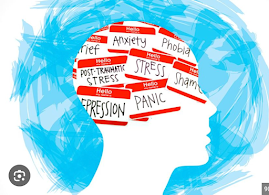The Reality of Technology: Mental Health and Social Media
In today's day and age, technology is everything. But at what cost? From my own experience getting a phone at 12 years old, yes, it was for safety. Yet the bad has outweighed the good. The unintended consequences like cyberbullying, revenge porn, mental health, and youth suicide rates are rising by the day. Mental health has become something we have become more understanding of as a society. Have we ever thought that the connections with more technology/social media go hand in hand with mental health? Does that mean our relationship with technology is unhealthy?From my point of view and based on my own experiences, I think that technology has harmed the world. Think it created an entirely new form of bullying. Think of those whose careers have been ruined because of revenge porn. Think of how many lives have been lost from our youth. Yes, it has brought good to the world, like having easy access to information at your fingertips or the major improvements to people's jobs/work industry. But the consequences go above and beyond. I remember, as a child, my parents telling me how bad my phone or the television was, but now I understand why. If the roles were reversed and I knew the things I do now, and I have my own experiences, I would shelter my child from technology. Having experienced cyberbullying, I don't think anyone should have to go through that. Of those who are victims of cyberbullying, 41% of children have social anxiety because of it. These victims are more likely to experience mental health problems, which can include suicidal thoughts, depression, and anxiety. Taking a further look into this form of bullying, "69% of individuals report having behaved abusively towards others online, but only 15% acknowledge being cyberbullies, which suggests a lack of awareness of what cyberbullying actually is." Imagine going through ample years of school and all the hard work you've done to get your job, just for that to be wiped away due to a photo of yourself on someone else's body or someone that you trusted sharing private content with the world. Revenge porn, now being reported, has shown a 40% increase during 2020 and 2021. The consequences of being a victim are severe, including difficulties in current or future relationships/employment, PTSD, anxiety, and depression. This has also created things like deepfakes, which can be photos or videos that have been altered to look like someone else; statistics show that 96% of deepfakes in 2019 were explicit. There is no question that social media goes hand in hand with mental health. This issue has gotten bad enough to the point the U.S. surgeon general released about the links to social media and youth mental health in a significant public advisory, "the first public warning supported by robust research." But it doesn't stop there; research has also shown that body image dissatisfaction and disordered eating "has been linked to decreased quality of life." Furthermore, COVID-19 created a mental health crisis surge as it contributed to heightening mental health in youths. Sadly, the circumstances of the pandemic did bring more attention to mental health and put it in the spotlight. In the newest generation, it's normal and okay, but in my generation, it was no, nothing is wrong with you. The statistics on increases in mental health conditions include anxiety increasing by 93.6%, depression by 83.9%, self-harm by 333.93%, and substance abuse by 62.7%. And it doesn't end there; youth suicide rates in the U.S. are a national trend that, by federal data, has shown lower life expectancy overall. "There is substantial evidence that the Internet and social media can influence suicide-related behavior." It doesn't stop there; it can disrupt sleep patterns and be a distraction to learning, peer pressure, and unrealistic views of others' lives. Overall, technology has done wonders in the world, but social media has the cons outweighing the pros. How can we fix this? How do we begin to help bring down these statistics of mental health and suicide of our youth? Some answers include parental guidance, social media platforms' responsibility, promoting positive content, well-being features, mental health support, promoting offline activities, and more crisis interventions that will need research and collaboration. These things will require collaborations between government agencies, schools/universities, parents, mental health professionals, and the technology industry itself. By doing this, we can work towards creating a safer and more positive online environment for our youth.


































